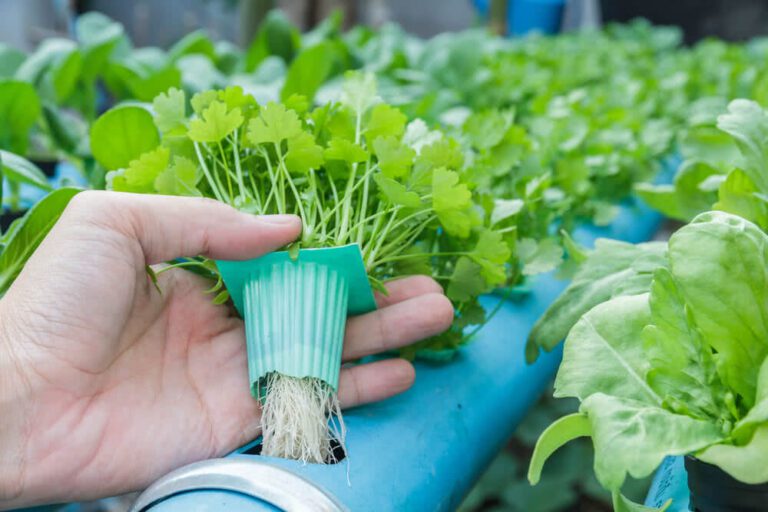How to Boost Your Plant Growth and Health with Nutrient Supplements and Additives
Welcome to the green revolution! Are you ready to unlock the secrets to thriving, lush plants that’ll make your neighbors green with envy? If you’ve ever wondered how to take your gardening game to the next level, you’re in the right place. In this blog, we’re diving deep into the world of nutrient supplements and additives – the secret sauce behind stunning plant growth and robust health.
From boosting nutrient uptake to warding off pesky pests, we’ve got you covered. Get ready to unleash your inner plant whisperer and transform your garden into a vibrant oasis of greenery. Let’s dive in and watch those plants flourish like never before!
Table of Contents
Understanding the Role of Nutrient Supplements and Additives in Plant Growth
Nutrient supplements and additives play a crucial role in promoting plant growth and maximizing plant health. These products are specifically designed to provide essential elements that may be lacking in the soil, allowing plants to thrive and reach their full potential. By replenishing and balancing the nutrient levels in the soil, supplements and additives help to overcome deficiencies and ensure optimal nutrient absorption by the plants.

- Targeted Nutrient Deficiency Correction:
- Supplements address specific nutrient deficiencies.
- Different plants have varying requirements.
- Deficiencies can cause stunted growth, poor flowering, and susceptibility to pests.
- Enhanced Nutrient Uptake and Utilization:
- Supplements improve nutrient absorption.
- Support root development and cell wall strength.
- Facilitate essential biochemical processes.
- Promotes Healthy Growth and Vigorous Plants:
- Proper application leads to healthier, more vigorous plants.
- Increased yields and overall plant health.
- Supplements and Additives: Gardeners can enhance plant health by using nutrient supplements and additives.
- Specific Nutrient Requirements: Understanding the unique nutrient needs of different plants is crucial for effective application.
- Dosage Instructions: Follow recommended dosage guidelines to prevent overuse, which can lead to imbalanced nutrient levels.
- Potential Harm: Overuse of supplements may harm plants, so it’s essential to exercise caution.
In the following sections, we will delve deeper into nutrient deficiencies, the selection of appropriate supplements and additives, and best practices for their application to maximize plant growth and vitality.
Identifying Nutrient Deficiencies in Plants and Their Impact on Health
Nutrient deficiencies in plants can have a significant impact on their overall health and vitality. It is vital for gardeners and plant enthusiasts to be able to identify these deficiencies early on to address them promptly and prevent further damage. By understanding the symptoms and signs associated with different nutrient deficiencies, it becomes easier to provide the necessary supplements and additives to restore optimal health to plants.

- Nitrogen Deficiency:
- Responsible for promoting leaf and stem growth.
- Symptoms include pale or yellowing leaves, stunted growth, and reduced vigor.
- Iron Deficiency:
- Leads to yellowing of leaves, known as chlorosis.
- May cause reduced leaf size and weak growth.
- Calcium Deficiency:
- Can result in blossom end rot in fruiting plants.
- Leads to stunted root growth.
Choosing the Right Nutrient Supplements and Additives for Your Plants
When it comes to choosing the right nutrient supplements and additives for your plants, it is crucial to consider their specific needs and growth requirements.
- Tailor Your Approach:
- Not all plants have uniform nutrient requirements.
- Conduct a soil test for insights into soil nutrient levels.
- Soil Test Insights:
- Identify deficiencies or excesses in soil nutrients.
- Use results to inform supplement decisions.
- Consider Nutrient Composition:
- Plants require specific nutrients in varying amounts.
- Select products tailored to your plants’ needs.
- Addressing Deficiencies:
- Choose supplements targeting identified deficiencies.
- For example, nitrogen deficiency warrants high-nitrogen fertilizers.
- Evaluate Ingredients:
- Examine supplement ingredients and chemicals.
- Ensure alignment with gardening practices and goals.
- Informed Decision Making:
- Careful evaluation of supplement composition.
- Opt for choices that fulfill plant needs and align with gardening principles.
The Importance of Proper Soil Preparation for Optimal Nutrient Absorption
Proper soil preparation plays a crucial role in maximizing nutrient absorption for plants, leading to healthier and more productive growth. When it comes to cultivating plants, the old adage “you reap what you sow” holds true. Just as a solid foundation is essential for constructing a sturdy building, preparing the soil adequately sets the stage for optimal nutrient uptake.

- Well-Drained Soil:
- Excessive moisture can lead to waterlogged roots and oxygen deprivation.
- Incorporate organic matter (compost or well-rotted manure) to improve soil structure and drainage.
- Organic matter enhances soil fertility and texture.
- pH Adjustment:
- Different plants have varying optimal pH ranges.
- Test soil pH and adjust it using amendments like lime or sulfur.
- Maintaining the right pH balance ensures nutrient availability for plants.
Preparing the soil properly before planting sets the stage for plants to grow and thrive to their fullest potential. By optimizing drainage and adjusting the pH levels, gardeners can create an environment where plants can absorb nutrients effectively, resulting in healthier and more robust growth. So, take the time to prepare your soil correctly, and watch your plants flourish in a nutrient-rich environment.
Using the Luster Leaf Rapitest Soil Tester 1602 has been a game-changer for my gardening. The kit is incredibly user-friendly, making it simple to test soil for pH, nitrogen, phosphorus, and potash levels. The detailed instructions and color-coded system ensure I get accurate and quick results every time. It’s portable and lightweight, making it convenient for both home use and trips to the community garden.
However, while the tests are reliable, they may not be as precise as professional lab results. The plastic components also seem a bit fragile, and the single-use test capsules mean I have to keep buying replacements. Despite these minor drawbacks, it’s an affordable and effective tool for any gardener wanting to monitor and improve their soil quality.
- User-Friendly: Easy to use, even for beginners.
- Comprehensive: Tests for pH, nitrogen, phosphorus, and potash levels.
- Fast Results: Provides quick and reliable readings.
- Portable: Compact and lightweight, ideal for both home and garden use.
- Affordable: Cost-effective solution for regular soil testing.
- Detailed Instructions: Comes with clear instructions and a color-coded system.
- Accuracy: Not as precise as professional lab tests.
- Single Use: Test capsules can only be used once, requiring replacements for repeated testing.
- Plastic Components: Made from plastic, which might not be durable over time.
- Limited Range: May not cover all nutrient deficiencies or excesses in detail.
- Messy: Soil extraction and mixing can be a bit messy.
Implementing a Regular Fertilization Schedule to Enhance Plant Growth
Implementing a regular fertilization schedule is essential for enhancing plant growth and ensuring optimal nutrient availability. By providing plants with the necessary nutrients at the right time, you can support healthy development, robust yields, and overall plant vitality.

- Consider Plant Specificity:
- Different plants have varied nutrient requirements.
- Customize fertilization plans based on plant needs.
- Utilize Soil Tests:
- Soil tests offer insights into soil nutrient composition.
- Tailor fertilization schedules based on test results.
- Account for External Factors:
- Growth stage, weather, and soil type influence nutrient uptake.
- Adjust fertilization frequency and dosage accordingly.
- Benefits of Structured Schedule:
- Regulates nutrient availability for plants.
- Prevents under or over fertilization, ensuring plant health.
- Importance of Monitoring:
- Regularly assess plant nutrient levels.
- Make necessary adjustments to maintain balance and sustainability in fertilization practices.
By providing a consistent supply of nutrients, plants can thrive, resist stressors, and achieve their full potential in terms of growth and productivity.
Exploring Organic Alternatives for Nutrient Supplements and Additives
When it comes to nurturing plants, there is an increasing trend towards organic alternatives for nutrient supplements and additives. Many gardeners are seeking to reduce their reliance on synthetic chemicals and embrace more sustainable practices in their cultivation methods. Organic alternatives offer a natural, environmentally friendly approach to supporting plant growth while minimizing potential harm to the ecosystem.

- Organic Alternative: Compost:
- Rich in essential nutrients, acts as a slow-release fertilizer.
- Improves soil structure, enhances moisture retention, and encourages microbial activity.
- Enhances overall soil health, ideal for long-term plant growth.
- Natural Soil Amendments:
- Bone meal, blood meal, fish emulsion offer organic alternatives.
- High in specific nutrients beneficial for plant growth.
- Example: Bone meal for phosphorus, vital for root development and flowering.
- Example: Fish emulsion for nitrogen, promoting healthy foliage growth.
- Application Methods:
- Apply directly to soil or use as foliar spray.
- Provides plants with readily absorbable nutrients for growth and development.
In conclusion, exploring organic alternatives for nutrient supplements and additives offers an eco-friendly approach to plant care. Compost and natural soil amendments provide essential nutrients for plant growth while improving soil health. By using such organic alternatives, gardeners can support sustainable practices in their gardening journey, ensuring healthy and thriving plants without compromising the environment.
Using Burpee Organic Bone Meal Fertilizer has made a noticeable difference in my garden. The nutrient-rich formula, high in phosphorus and calcium, has significantly boosted the root development and flowering of my plants. I appreciate that it’s certified organic, aligning with my commitment to organic gardening. It’s versatile and easy to apply, whether mixed into the soil or sprinkled on top.
However, it does have a strong odor, which might be off-putting to some, and it tends to attract pets and wildlife. Despite being slightly more expensive than synthetic options, the slow-release nature of this fertilizer means I don’t have to reapply it frequently, making it a convenient choice. Overall, it’s an excellent product from a trusted brand, and I highly recommend it for any organic gardener.
- Organic: Certified organic, suitable for organic gardening.
- Nutrient-Rich: High in phosphorus and calcium, essential for root development and flowering.
- Versatile: Effective for a variety of plants, including vegetables, flowers, and trees.
- Easy to Apply: Simple to use, can be mixed into the soil or sprinkled on top.
- Trusted Brand: Burpee is a well-known and respected name in gardening.
- Slow Release: Provides a steady supply of nutrients over time, reducing the need for frequent applications.
- Odor: Has a noticeable smell, which may be unpleasant to some users.
- Attracts Animals: Can attract pets and wildlife due to its organic nature.
- Cost: Slightly more expensive than synthetic fertilizers.
- Availability: May not be available in all local stores, requiring online purchase.
- Application Rate: Requires careful measurement to avoid over-application.
Tips for Correctly Applying Nutrient Supplements and Additives to Plants
Applying nutrient supplements and additives correctly is essential for maximizing the growth and health of your plants. By following these tips, you can ensure that your plants receive the right nutrients in the right amounts:
1. Understand your plants’ needs: Different plants have different nutrient requirements. Before applying any supplements or additives, take the time to research and understand the specific nutritional needs of your plants. This will help you choose the right products and avoid over or underapplying nutrients.
2. Follow product instructions: Each nutrient supplement or additive typically comes with specific instructions on the label. It is crucial to read and follow these instructions carefully. Pay attention to the recommended dosage, application method, and frequency of use. Incorrect application can lead to nutrient imbalances or even damage to your plants.
Remember, a little goes a long way. Overusing supplements and additives can be detrimental to plant health. It is always better to start with a lower dosage and gradually increase as needed, while closely monitoring your plants’ response. Additionally, ensure that you store your nutrient products properly, following any specific storage instructions provided.
By understanding your plants’ needs and following product instructions, you can effectively apply nutrient supplements and additives to support their growth and overall health. Stay tuned for more tips on enhancing your plant’s vitality and troubleshooting common growth issues.
Understanding the Potential Risks and Side Effects of Overusing Supplements and Additives
Overusing nutrient supplements and additives in plant growth can have potential risks and side effects that gardeners need to be aware of. While these products can provide essential nutrients and promote healthy plant growth, excessive use can lead to detrimental effects on both the plants and the surrounding environment.
- Nutrient Imbalances:
- Overapplication disrupts the delicate nutrient balance needed for optimal plant growth.
- Excessive nitrogen-rich fertilizers can lead to more foliage growth but hinder flowering or fruiting.
- Too much phosphorus affects nutrient uptake and can result in stunted growth and deficiencies.
- Environmental Harm:
- Excessive use of supplements can leach into water sources, causing water pollution.
- Runoff from fertilizers contributes to eutrophication, harming aquatic ecosystems.
Understanding the potential risks and side effects of overusing nutrient supplements and additives is essential for gardeners seeking to optimize plant growth. By practicing responsible use and following recommended guidelines, gardeners can support plant health while minimizing harm to the environment.
Enhancing Plant Health with Beneficial Microorganisms and Soil Amendments
Beneficial microorganisms and soil amendments play a crucial role in enhancing plant health and promoting optimal growth. By providing a wide range of benefits to the soil and plant roots, these valuable additions can significantly improve the overall vitality and resilience of your plants.

- Advantages of Beneficial Microorganisms:
- Form symbiotic relationships with plants, e.g., mycorrhizal fungi.
- Enhance nutrient uptake and water absorption.
- Extend root system, increasing nutrient absorption surface area.
- Improve plant resilience to environmental stressors.
- Suppress harmful pathogens, reducing disease risk and enhancing immune response.
- Benefits of Soil Amendments:
- Enhance soil structure and fertility.
- Create favorable environment for root development and nutrient absorption.
- Organic matter improves water-holding capacity, ensuring plant hydration.
- Mineral supplements address specific nutrient deficiencies, promoting optimal plant growth.
- Maximizing Benefits:
- Apply microorganisms and amendments correctly and in appropriate quantities.
- Seek guidance from reputable sources or experts for optimal use.
- Choose microorganisms and amendments tailored to specific plants and soil conditions.
Remember, making informed decisions and implementing recommended practices will help you achieve a healthy and flourishing garden.
Incorporating Natural Plant Growth Promoters to Boost Overall Plant Vitality
Natural plant growth promoters are a valuable tool for enhancing the overall vitality of your plants. These promoters, derived from organic sources, work in harmony with the natural processes of plant growth and development. By incorporating these natural substances into your gardening routine, you can unlock the full potential of your plants, leading to healthier and more robust growth.
Mycorrhizal fungi and nitrogen-fixing bacteria form symbiotic relationships with plants.
They aid in nutrient uptake and promote root development.
Plants inoculated with these microorganisms exhibit improved disease resistance and enhanced nutrient absorption.
Enrich the soil with essential nutrients.
Improve soil structure and enhance water-holding capacity.
Plants grown in amended soil absorb nutrients better, resist stress, and achieve optimal growth.
| Incorporating Natural Plant Growth Promoters | Natural Promoters and Benefits |
|---|---|
| 1. Compost and Organic Matter | – Nutrient-Rich Soil: Enhances soil fertility with organic nutrients. |
| – Microbial Activity: Supports beneficial microbial populations. | |
| 2. Seaweed Extracts | – Rich in Micronutrients: Provides essential trace elements for plants. |
| – Stress Resistance: Enhances plants’ ability to withstand stress. | |
| 3. Manure Tea | – Slow-Release Nutrients: Acts as a natural, slow-release fertilizer. |
| – Microbial Boost: Encourages beneficial soil microorganisms. | |
| 4. Neem Oil | – Pest Control: Acts as a natural insecticide and repellent. |
| – Antifungal Properties: Helps combat fungal diseases in plants. | |
| 5. Molasses | – Microbial Activation: Feeds beneficial soil microbes, improving soil health. |
| – Enhanced Nutrient Uptake: Facilitates nutrient absorption by plants. | |
| 6. Fish Emulsion | – Source of Nutrients: Provides a balanced mix of nitrogen, phosphorus, and potassium. |
| – Promotes Growth: Supports vigorous vegetative and flower development. | |
| 7. Aloe Vera Extract | – Plant Immunity: Boosts the plant’s immune system against diseases. |
| – Root Growth: Aids in root development and overall plant resilience. | |
| 8. Epsom Salt (Magnesium Sulfate) | – Magnesium Supply: Corrects magnesium deficiencies in plants. |
| – Flowering and Fruiting: Supports flower and fruit production. | |
| 9. Cinnamon Powder | – Antifungal Properties: Acts as a natural fungicide to prevent soil-borne diseases. |
| – Root Protection: Protects plant roots from rot and pathogens. | |
| 10. Alfalfa Meal | – Natural Growth Hormones: Contains triacontanol, a plant growth stimulant. |
| – Soil Conditioning: Improves soil structure and water retention. | |
| 11. Chamomile Tea | – Disease Prevention: Has antimicrobial properties, reducing the risk of diseases. |
| – Stress Relief: Acts as a calming agent for plants during stressful conditions. |
Utilizing Foliar Feeding Techniques to Maximize Nutrient Uptake
Foliar feeding techniques have gained popularity among gardening enthusiasts as an effective way to enhance nutrient uptake in plants.
- Foliar Feeding Method:
- Involves applying nutrient solutions directly to plant leaves.
- Facilitates rapid absorption through foliage, bypassing the root system.
- Results in faster and more efficient nutrient delivery to plant cells.
- Addressing Nutrient Deficiencies:
- Quick response to nutrient deficiencies in plants.
- Targets deficiencies directly, bypassing potential soil nutrient imbalances or root absorption issues.
- Signs include yellowing leaves or stunted growth.
- Advantages in Hydroponic Systems:
- Especially beneficial in hydroponic setups.
- Addresses limited root contact with nutrient solution.
- Allows plants to readily absorb essential elements for healthy growth.
Monitoring and Adjusting Nutrient Levels to Ensure Optimal Plant Health
To ensure optimal plant health, it is crucial to regularly monitor and adjust nutrient levels. Nutrient deficiencies or excesses can have a significant impact on the growth and development of plants, leading to stunted growth, susceptibility to diseases, and reduced yields. By carefully assessing and modifying nutrient levels, gardeners can maintain a balanced and harmonious environment for their plants to thrive.

- Soil Testing:
- Begin by assessing the nutrient needs of your specific plant species.
- Conduct soil tests using kits or laboratory analysis to determine the current nutrient composition and pH levels of the soil.
- These results serve as a baseline for identifying deficiencies or imbalances.
- Regular Monitoring:
- Throughout the growing season, monitor nutrient levels regularly.
- Timely adjustments can prevent nutrient-related issues from worsening.
- Selecting Nutrient Amendments:
- Choose the right fertilizers, supplements, or additives based on your plant’s requirements.
- Understand the specific macro and micronutrients needed for optimal growth.
- Application Rates:
- Follow manufacturer instructions for synthetic or organic fertilizers.
- Apply nutrients in the correct amounts to avoid over or underdosing.
- Consider Environmental Factors:
- Soil type, water quality, and climate impact nutrient availability.
- Adjust nutrient levels accordingly based on these factors.
By carefully monitoring and adjusting nutrient levels, gardeners can ensure that their plants receive the right balance of nutrients for optimal health and productivity.
Troubleshooting Common Plant Growth Issues and Adjusting Nutrient Supplements Accordingly
When it comes to plant growth, there can be a variety of issues that may arise. From stunted growth to yellowing leaves, troubleshooting these common problems is essential for maintaining healthy and thriving plants. One key aspect of addressing these issues is adjusting the nutrient supplements accordingly.
- Identifying Slow or Stunted Growth:
- Common problem caused by nutrient deficiencies, soil conditions, or environmental factors.
- Initial step involves identifying underlying cause.
- Utilizing Soil Tests:
- Conduct soil test to assess nutrient levels and pH.
- Provides insights into soil conditions affecting plant growth.
- Adjusting Nutrient Supplements:
- Incorporate necessary elements like nitrogen, phosphorus, or potassium to stimulate growth.
- Follow recommended dosage and application instructions carefully.
- Preventing Over-Fertilization:
- Beware of over-fertilization, which can worsen growth issues.
- Carefully monitor nutrient levels and avoid excessive application to prevent complications.
By identifying the specific nutrient deficiencies and adjusting the supplements accordingly, gardeners can effectively troubleshoot stunted growth and promote optimal plant development.
Watch video for more information:
FAQ
What are some common signs of nutrient deficiencies in plants?
Some common signs of nutrient deficiencies in plants include yellowing or discoloration of leaves, stunted growth, poor fruit or flower development, and leaf curling or distortion.
How can I choose the right nutrient supplements for my plants?
Choosing the right nutrient supplements for your plants depends on the specific deficiencies they are experiencing. Conducting a soil test can help identify which nutrients are lacking, and then selecting a supplement that addresses those specific deficiencies.
What is the importance of proper soil preparation for nutrient absorption?
Proper soil preparation is crucial for optimal nutrient absorption because it ensures that the nutrients are available to the plant’s roots. This includes loosening the soil, removing weeds or debris, and incorporating organic matter to improve soil structure and nutrient availability.
How often should I fertilize my plants?
Implementing a regular fertilization schedule is recommended to enhance plant growth. The frequency of fertilization depends on the specific needs of your plants, but a general guideline is to fertilize every 4-6 weeks during the growing season.
Are there organic alternatives available for nutrient supplements and additives?
Yes, there are organic alternatives available for nutrient supplements and additives. These include organic fertilizers, compost, and natural amendments such as bone meal or seaweed extract.
What are some tips for correctly applying nutrient supplements and additives to plants?
Some tips for correctly applying nutrient supplements and additives include following the recommended dosage instructions, applying them evenly and avoiding direct contact with plant foliage, and watering the plants after application to aid in nutrient absorption.
What are the potential risks of overusing supplements and additives?
Overusing supplements and additives can lead to nutrient imbalances, which can be harmful to plants. This can result in nutrient toxicity, stunted growth, or even plant death. It is important to follow recommended dosage instructions and monitor the plants’ response to avoid overuse.
How can I enhance plant health with beneficial microorganisms and soil amendments?
Beneficial microorganisms and soil amendments can improve plant health by promoting nutrient uptake, enhancing soil structure, and suppressing harmful pathogens. Examples include adding compost, using mycorrhizal fungi, or applying biofertilizers.
What are natural plant growth promoters and how can they boost plant vitality?
Natural plant growth promoters are substances derived from plants or other natural sources that stimulate growth and enhance plant vitality. These can include substances like seaweed extracts, humic acids, or plant hormones, which can improve root development, flowering, and overall plant vigor.
How can foliar feeding techniques maximize nutrient uptake?
Foliar feeding involves applying nutrient solutions directly to the leaves of plants. This technique can maximize nutrient uptake as the nutrients are absorbed through the leaf surface, bypassing any soil nutrient limitations or absorption barriers.
Why is it important to monitor and adjust nutrient levels for optimal plant health?
Monitoring and adjusting nutrient levels is important for optimal plant health because it ensures that the plants have access to the right balance of nutrients they need for growth and development. Regular monitoring allows for timely adjustments to prevent deficiencies or toxicities.
How can I troubleshoot common plant growth issues and adjust nutrient supplements accordingly?
Troubleshooting common plant growth issues starts with identifying the specific problem, such as nutrient deficiencies or pests. Once identified, appropriate nutrient supplements can be chosen to address the issue. Regular monitoring, proper soil preparation, and adjusting nutrient levels based on the plant’s needs are key to resolving growth issues.

Studied Agricultural Engineering-Plant Protection at University of California, Davis.
Head of Content writing team at Southelmontehydroponics.com








